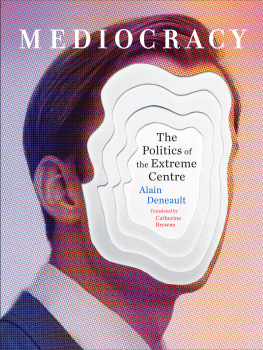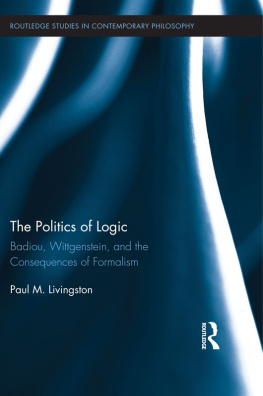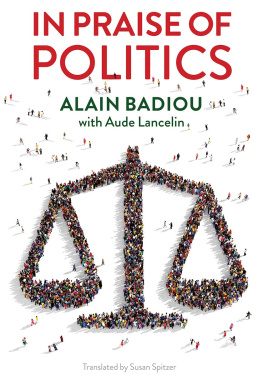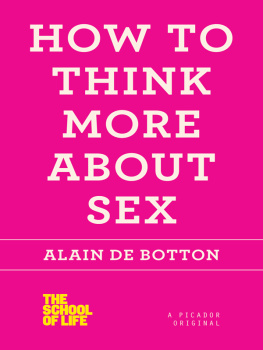Mediocracy
The Politics of the Extreme Centre
ALAIN DENEAULT
TRANSLATED BY Catherine Browne
Between the Lines
Toronto
Contents
If we live in an age where gasbags and show-offs increasingly walk the halls of power, Alain Deneaults brilliant and witty book reveals the truth behind the grandstanding: a crushing and intolerant mediocracy. The extreme average is now the new normal. You know who they are. The brainless politician who acts on a hunch. Professors who cant teach without hundreds of pointless PowerPoint slides. Business managers who have absolutely no idea what theyre talking about. Painfully average students. Deneaults book is essential reading for anyone today who still cares about escaping the insipid banality of neoliberal capitalism.
Peter Fleming, author of The Death of Homo Economicus: Work, Debt and the Myth of Endless Accumulation
The nature of domination in our society is precisely imprecise, creating a challenge for the middle theories we use to make sense of living amid the shiny ruins of late stage capitalism. This book advances a theory grand enough for the task of piercing that veil.
Tressie Mcmillan Cottom, assistant professor of sociology, Virginia Commonwealth University
It has been a great pleasure to translate Alain Deneaults fierce, funny, and thought-provoking book into English.
A French readers expectations of this book would be shaped by the category to which it belongs, the essai, which has no exact equivalent in English. This category embraces a wide variety of publications: Simone de Beauvoirs The Second Sex is an essai, as are Roland Barthess Mythologies, Guy Debords The Society of the Spectacle, and Henri Lefebvres The Right to the City. Theodor Adornos Minima Moralia is an example in German. The books I have just named are intellectually serious and politically engaged. Their style is lively and sometimes polemical; they were written for educated readers, but not specifically for academics. Writing in this genre, authors are not required to avoid subjectivity, footnote everything, or stick to a specialized subject they have studied for decades. They are allowed to range over multiple disciplines and to put forward abstract ideas using difficult philosophical terms. These characteristics, which would not necessarily attract attention in French, may be somewhat unexpected in English. (I have provided the endnotes that were not included in the French edition; a reader who chooses to ignore them will be experiencing the book as it was written.)
In many ways this translation is different from the original French. With the authors consent, some sections have been removed, and others rewritten, to sharpen the books focus on issues of relevance to an English-language audience. In this respect, there has been a significant effort to adapt the book.
At the same time, I was reluctant to make the book sound as if it had been written in standard North American English. Deneaults style, deeply rooted in the French aesthetic, shapes his way of thinking and creating meaning. To remove every unusual aspect of this style would be to negate the specific quality of his thought. I have tried to convey this quality, and my hope is that readers will find pleasure in discovering something that is recognizably written in English, yet remains radically strange.
Catherine Browne
Put those complex tomes aside: an accounting textbook will do the job. Dont be proud, or witty, or even at ease: youll come across as arrogant. Stop being so passionate: youll scare people off. Most importantly, avoid good ideas: the shredder is full of them. That piercing look of yours makes people anxious: open your eyes and relax your lips. Your thoughts should be flabby, and they should look flabby, too. When you talk about yourself, make sure we know youre nothing much. That will help us put you in the right box. Times have changed. No one stormed the Bastille, there was no Reichstag fire, the Aurora did not fire a shot. And yet the attack was launched, and it worked: the mediocre have taken power.
What is the chief skill of a mediocre person? Recognizing another one. Together, they will organize back-scratchings, make sure favours are returned, and, since they quickly find ways to attract their fellows, establish the power of a growing clan. What really matters is not avoiding stupidity, but making sure it is decorated with images of power. If stupidity did not outwardly resemble progress, genius, hope, and improvement, the chances are that no one would want to be stupid, observed Robert Musil. () Be comfortable hiding your shortcomings behind a normal attitude, always claim to be pragmatic, and be ready to improve yourselffor mediocracy suffers neither inability nor incompetence. You should know how to use the software, fill out a form without whining, parrot phrases such as high standards of corporate governance and value proposition, and say hello to the right people at the right time. Butand this is keyyou must not go any further.
Mediocrity designates what is average, just as superiority and inferiority designate what is superior or inferior. As a concept, averageness has little currency. But mediocrity does not refer to the average as an abstractionit is the average stage in actuality; and mediocracy, therefore, is the average when it has been granted authority. Mediocracy establishes an order in which the average is no longer an abstract synthesis that allows us to grasp the state of things, but the standard that we are compelled to obey. And if we assert our freedom, that simply demonstrates how effective the system is.
The division and industrialization of labourboth manual and intellectualhave greatly contributed to the advent of mediocre power. Perfecting each task to make it useful to a whole that no one can grasp has helped make experts out of gasbags who spout just-in-time orations on fragments of truth, while workers are reduced to tools for whom life-activity... is but a means of securing [their] own existence. ()
Such was Marxs observation in 1849, and he also noted that capital, in reducing labour first to labour power, then to an abstract unit of measure, and finally to its cost (salary being equivalent to what workers need to reproduce their labour power), has made workers indifferent to work itself. Craftsmanship has been lost. People may now produce meals on the assembly line without knowing how to cook at home, give customers instructions over the phone that they dont understand themselves, sell books or newspapers that they themselves never read. Pride in a job well done is vanishing. As Marx explained in the Contribution to the Critique of Political Economy (1857):
The fact that the particular kind of labour employed is immaterial is appropriate to a form of society in which individuals easily pass from one type of labour to another, the particular type of labour being accidental to them and therefore irrelevant. Labour, not only as a category but in reality, has become a means to create wealth in general. ()
Devitalized labour, seen by the worker as but a means of securing his own existence, is the means that capital has given itself to ensure its own growth. Employers and workers are agreed at least on one thing: every craft has become a job, and every job is seen as a means.
Languages derived from Latin tend to use similar words for the average and for something used to reach a goal: French: moyenne / moyen, Italian: media /














